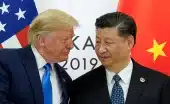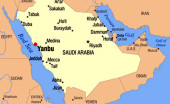Molly Minturn - My family is heartbroken to share that my father died in surgery on Monday, Feb. 10. It…
U.S. International relations and foreign policy June 2025-
Written by Diana Thebaud Nicholson // June 13, 2025 // Foreign Policy, Geopolitics, U.S. // No comments
U.S. International relations and foreign policy
20 January-31 May 2025
13 June
Trump Talks Big on Global Diplomacy, but His Goals Are in Tatters
The president said he would bring a quick end to the wars in Ukraine and Gaza, and get China to bend on trade and Iran on its nuclear program. Instead, conflict is escalating.
(NYT) Donald J. Trump may be known for his combative, vindictive style. But as a candidate for president in 2024, he cast himself as a man of peace. His toughness and the “respect” he enjoys from foreign leaders, he insisted, would enable him to settle conflicts almost with a snap of his fingers.
The war in Ukraine could be ended in as little as 24 hours, he said. He would knock heads to reach an agreement between Israel and Hamas to stop the fighting in Gaza.
And he said he would strike a nuclear deal with Iran, “because the consequences are impossible. We have to make a deal.”
A day after Israel began a massive attack on Iran, however, Mr. Trump’s peace projects are in tatters. The fighting in Ukraine rages on and Mr. Trump appears to have lost patience with efforts to end that war. In Gaza, both Israel and Hamas cling to basic positions they staked out long before Mr. Trump took office.
And instead of announcing a new nuclear deal with Tehran, a president who often denounces America’s history of “stupid” Middle East wars is trying to navigate a dangerous conflict between Iran and Israel, the closest U.S. partner in the region.
Fulbright’s Future in Doubt as Trump Targets Elite Scholarship
The program’s academic freedom has been called into question after the Trump administration rejected awards.
(Bloomberg AI) The administration’s latest attempt to exert control over higher education has threatened a nearly 80-year-old institution that participants call a key instrument of American soft power. Every year, the highly selective Fulbright Program awards more than 8,000 grants, both to US scholars pursuing research projects abroad and foreign academics seeking to study in the states. Created by Congress in the aftermath of World War II, the grants were meant to strengthen ties with other nations and cement America’s image as a leader in cutting-edge research.
11 June
War and Peace, 2025: Canada, NATO, and a Rogue America
Jeremy Kinsman
(Policy) … Under Donald Trump, the US has gone rogue, not only regarding its institutions and arrangements with allies, but in its abandonment of the values, ideals and dependable motives that made it a soft-power superpower for more than a century, as well as the shared affinities that defined its foreign attachments.
G7 and NATO allies are agitated by growing evidence that Russia and China (and various other rogue actors) believe they can act with impunity from weakened international institutions and councils. But they are mostly agitated by the actions and attitudes of their long-standing American partner, who suddenly hews more closely to that autocratic model than to its 250-year history as a democracy.
… The fact is that the Trump administration is advancing a different worldview than America’s democratic allies, perhaps toward new geopolitical groupings around three dominant spheres of influence: the US in the Americas, China in Asia, and Russia in Eurasia. This is obviously anathema to US allies from Europe, Japan, and especially Canada.
4-5 June
Rights groups, but few world leaders, race to condemn the travel ban.
on Thursday, the morning after Mr. Trump targeted people from a dozen countries in a new ban, the immediate reaction was muted. Some leading rights groups condemned the move on social media, but few governments had a quick and decisive response to share.
See the Countries Under Trump’s New Travel Ban
President Trump has targeted the citizens of a dozen countries as part of a new ban on travel to the United States and restricted travel for those from several more countries.
US issues full entry ban on 12 countries, with dual citizens among exemptions
Order bans travel to US from 12 countries
Travel from 7 other countries restricted
Trump cites national security concerns
Ban becomes effective on June 9
(Reuters) – U.S. President Donald Trump signed a proclamation on Wednesday banning the citizens of 12 countries from entering the United States, saying the move was needed to protect against “foreign terrorists” and other security threats.
The directive is part of an immigration crackdown Trump launched this year at the start of his second term, which has included the deportation to El Salvador of hundreds of Venezuelans suspected of being gang members, as well as efforts to deny enrollments of some foreign students and deport others.
4 June
Russia’s RT network on the rise as VOA fades
The clash between the Trump administration and Voice of America continues. In March, an executive order was issued to eliminate VOA’s supervising agency. Since then, VOA has been slashed and has cut down operations while also challenging the executive order in court. But as VOA shrinks, Russian news agencies targeting international audiences are growing.
…Kari Lake, a former news anchor from Arizona-turned Republican politician…was Trump’s pick for senior adviser to the US Agency for Global Media, which oversees VOA.
Soon, it became clear that Lake’s appointment was about closing down the network rather than reforming it. This March, VOA’s 1,300 employees were placed on administrative leave. Their website has been idle ever since — though some of its broadcasting continues.
Kari Lake has defended the cuts. In an interview last month with One America News Network she said, “The taxpayer, by the way, is footing the bill for this nearly billion-dollar agency which broadcasts news to the world, not here in America, but news to the world.”
Voice of America, and other similar news agencies funded by the US government, has always catered to a foreign audience. Mark Pomar is a senior national security fellow at the Clements Center at the University of Texas and is also the author of “Cold War Radio,” a book about the history of Voice of America and Radio Free Europe/Radio Liberty.
3 June
The meaning behind Trump’s foreign policy trolling
The president hasn’t purged idealism from GOP foreign policy. He has just redirected it.
Jason Willick
(WaPo) The divide between “realists” and “idealists” in foreign policy is simplistic but useful. Realists think the purpose of American foreign policy is to protect the country’s physical security and wealth. Idealists think the United States should promote democracy and human rights abroad. There’s huge overlap, of course, but the categories help separate those who see the world through the lens of national interest and those who see it through the lens of morals and values.
The Trump administration, Washington tends to assume, falls on the realist side of the ledger. Donald Trump is “America First.” He’s transactional. He reserves his most cutting opprobrium for neoconservatives — loosely defined as Republican idealists and democracy-promoters. But Trump hasn’t purged idealism from GOP foreign policy; he has aimed it at different targets.
The State Department last week published a pointed condemnation of antidemocratic behavior by foreign governments. That would be par for the course for a “neoconservative” administration — if the criticism were aimed at countries in the Middle East or at Russia or China. But the Trump State Department instead blasted Europe, which the document says “has devolved into a hotbed of digital censorship, mass migration, restrictions on religious freedom, and numerous other assaults on democratic self-governance.”


